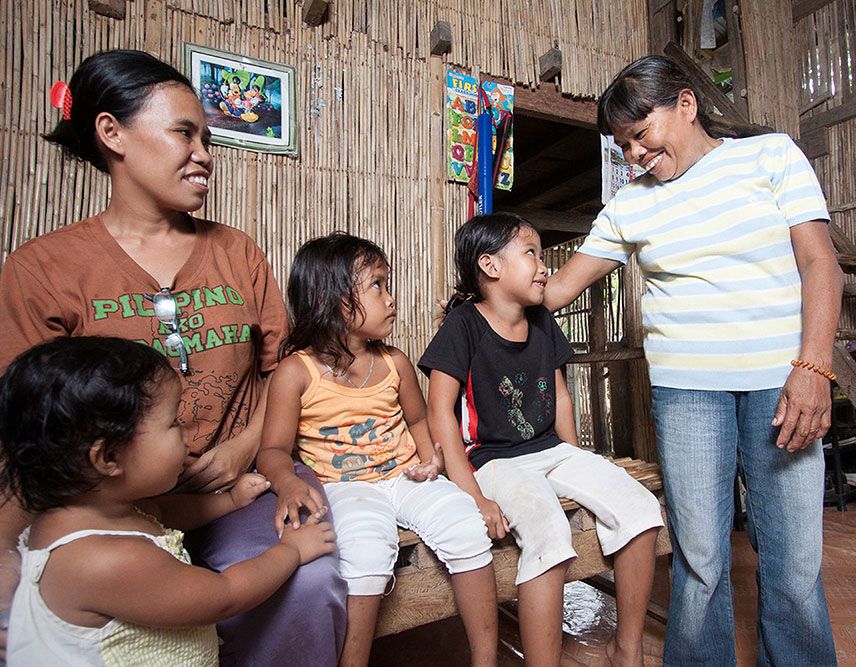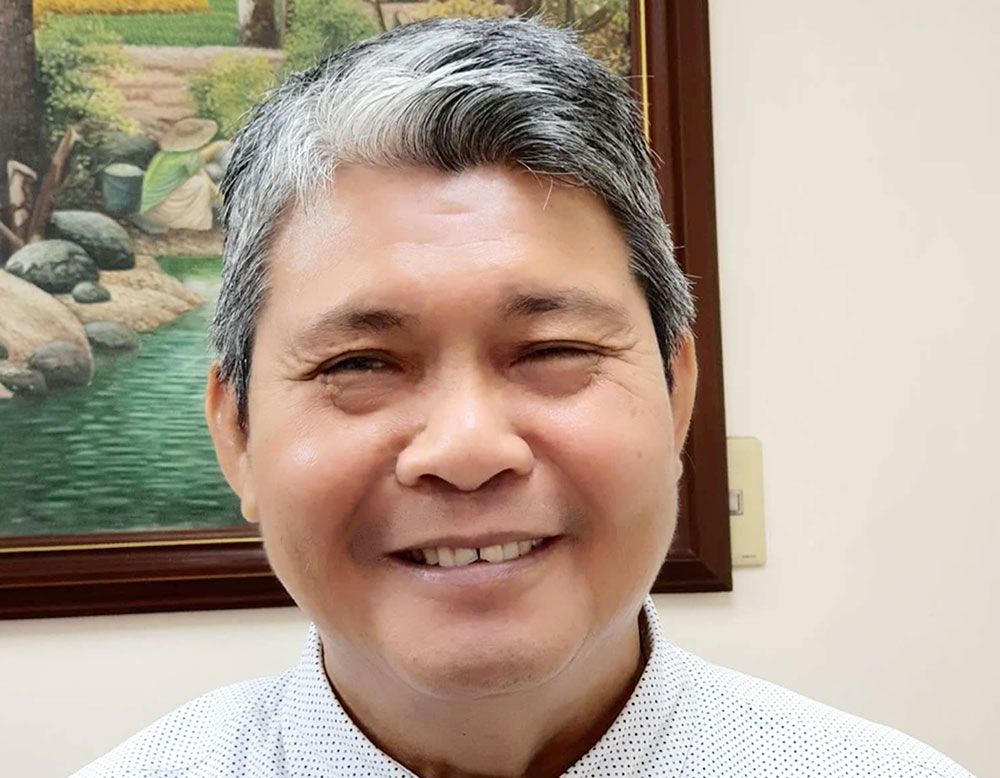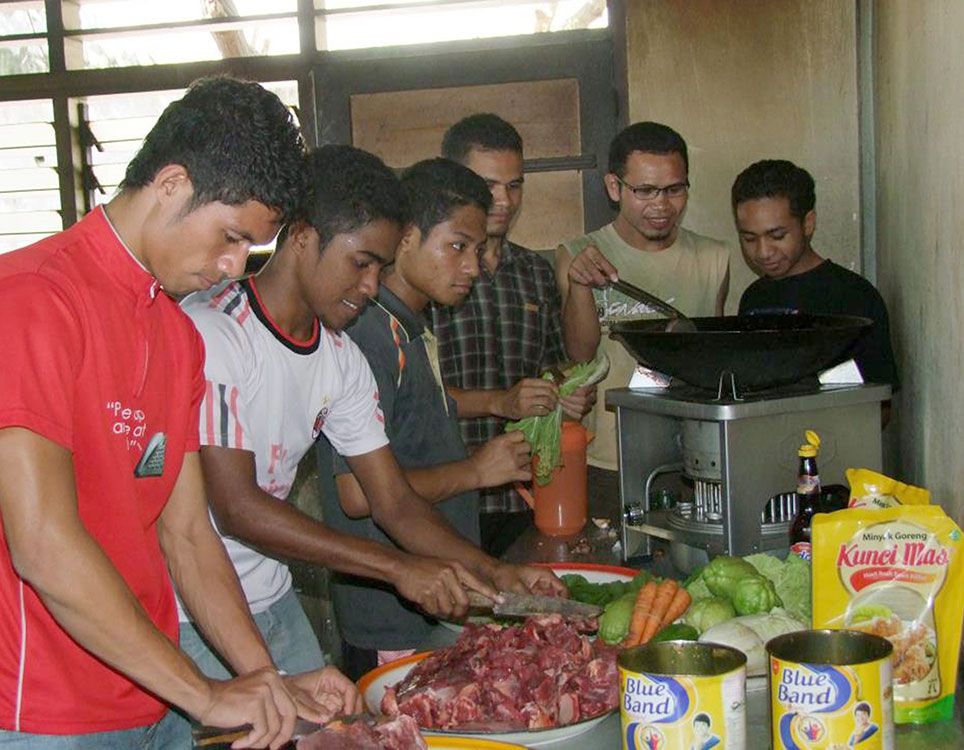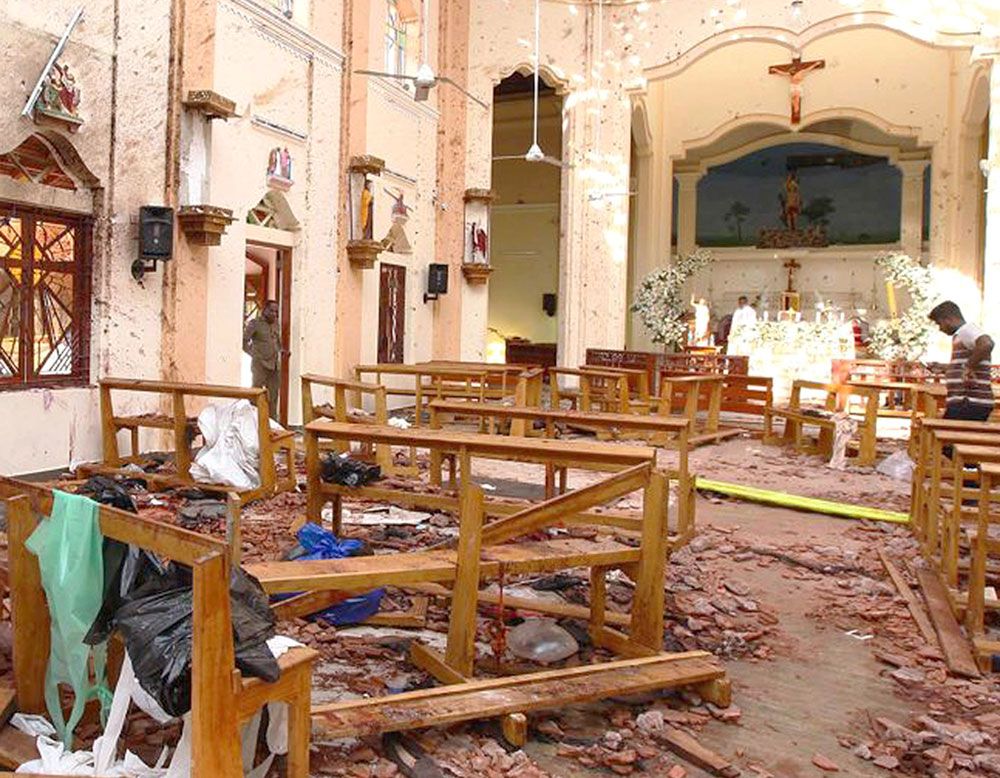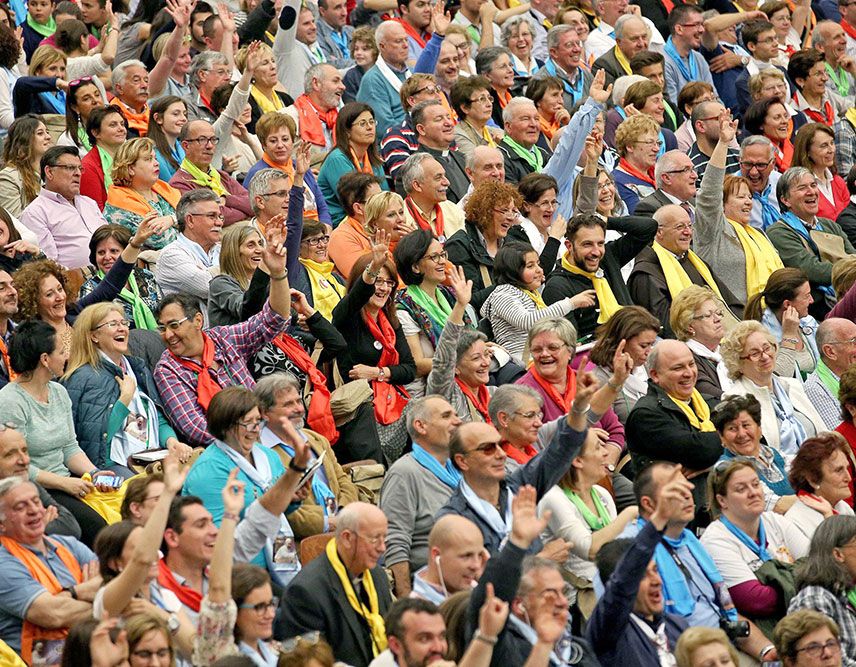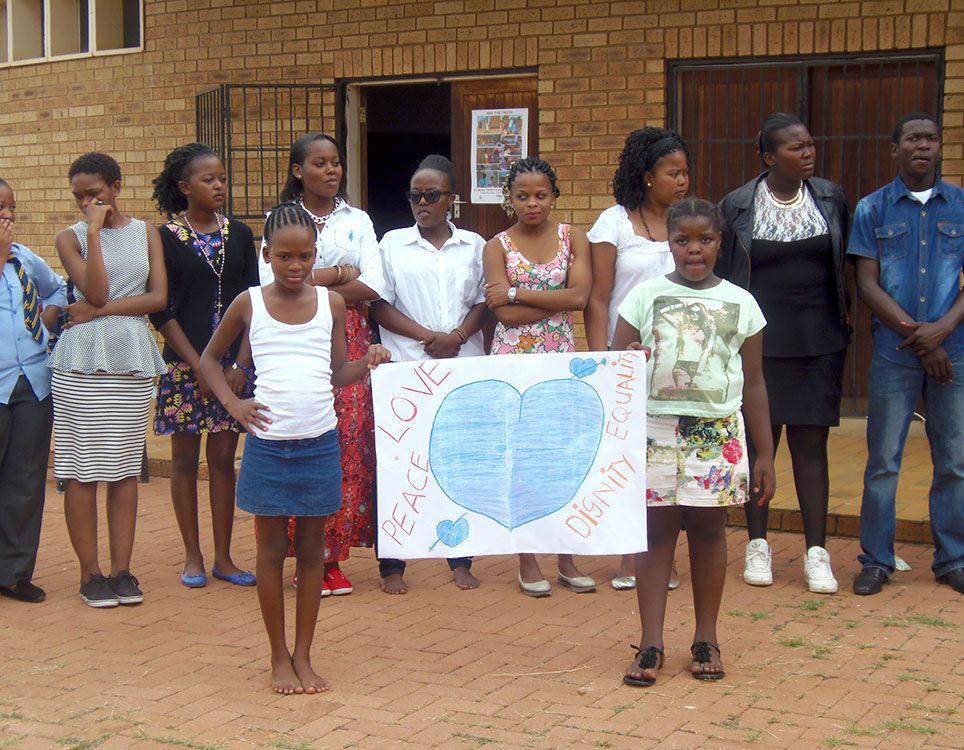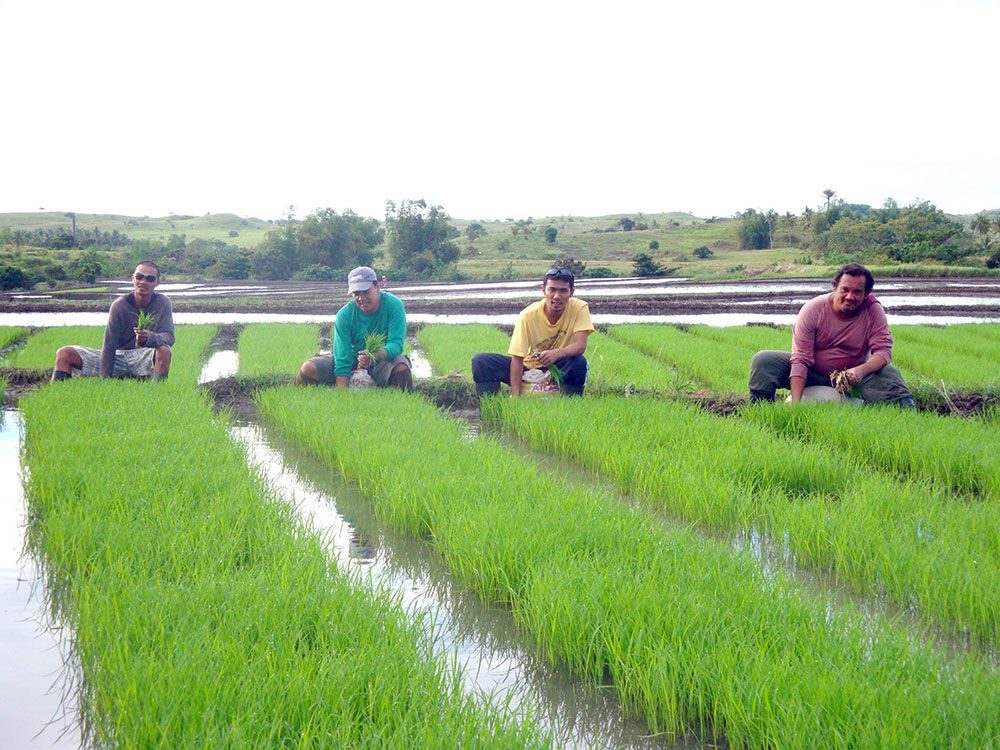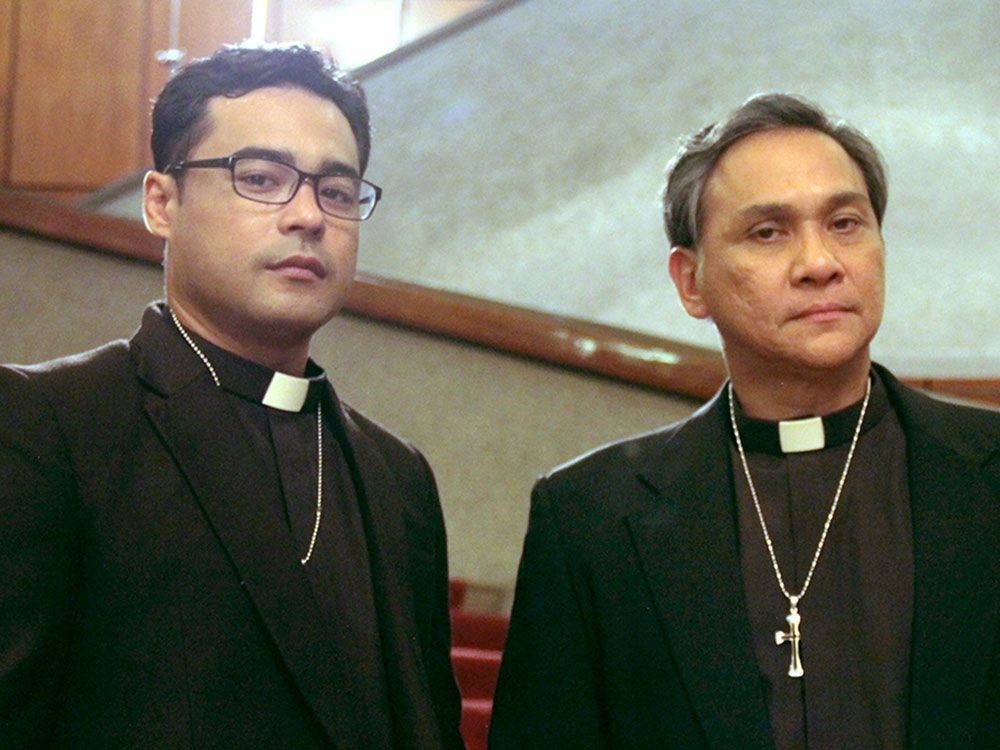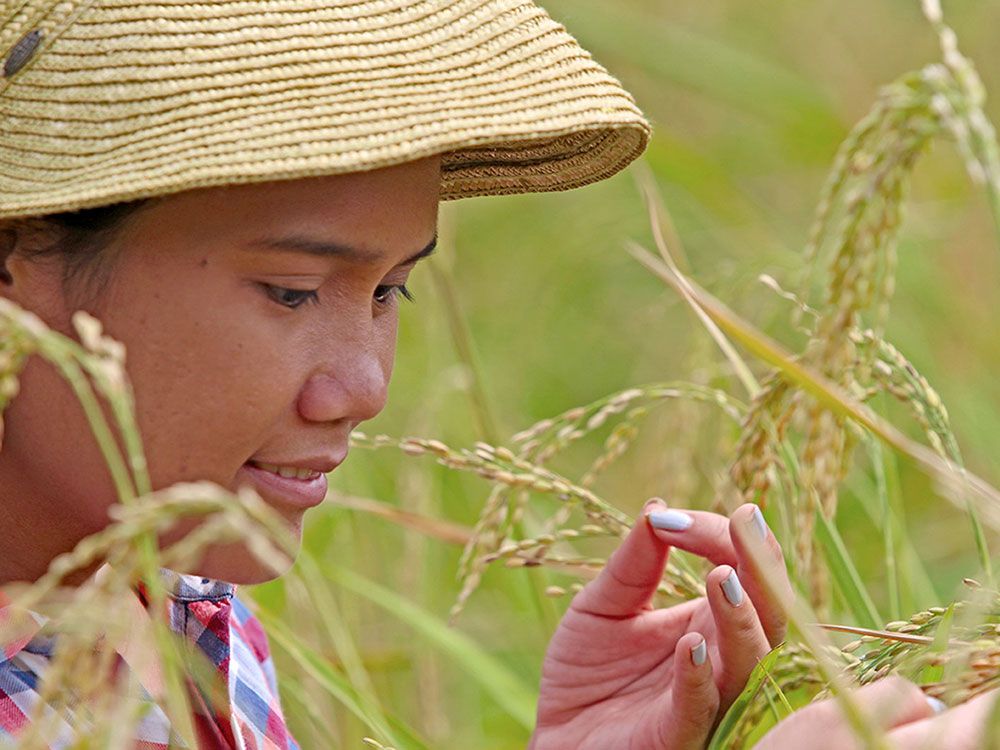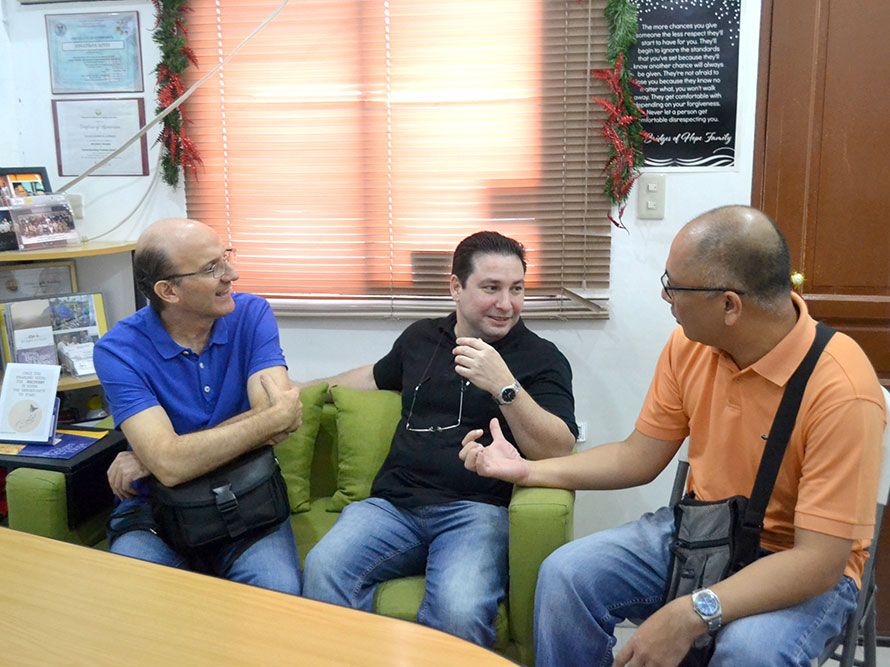Please, tell us more about yourself
I was born on Christmas Day, hence the name Chrisma (Chrisma Caroline in my baptismal certificate). I am the eldest of four siblings – three girls and a boy. My family, especially my father’s side, has always been close to the church. As a young girl, I remember looking at my paternal grandfather kneel after giving communion. He was one of the two first lay ministers of our town. My dad was a long-time lay minister. I remember that even as kids, we were already involved in church service. Every Saturday afternoon, we took part in cleaning the Church. We used to watch the lives of different saints on TV.
You teach at the Dominican-run Pontifical University of Santo Tomas and do other works. How do you balance your life?
On top of every work that I do is my missionary work, which I do on my own. I am not part of any foundation or organization. I believe that I can be more productive, reach out to more.
It was never a problem juggling several works. I have been blessed with employers that also value my teaching and pastoral work. I have been given the most flexible work schedule in my corporate work. I was able to balance all my work because I knew from the very start what my priorities are.
While not teaching and working, you are in mission in far-flung areas of the Philippines. How do you go about it?
I do all kinds of work – whatever is needed, whatever is asked of me – from doing the lectures and formation of various groups and ministries to feeding children, doing catechism, giving Pre-Sacrament and Pre-Cana (a course or consultation for couples preparing to be married in a Catholic church) and ongoing formation talks. I also spearhead the Love the Poor Program of the parish, so I do the buying, oversee the re-packing and the distribution of grocery packs, rice, cookies, and candies.
Who inspired you to undertake missionary work?
I think it is all the work of the Holy Spirit. Everything just came into place. The more I got exposed, the more I got immersed, the more I became passionate about it. There is this burning desire within me to keep reaching out. It is a thirst, a deep-seated hunger to be able to do more for the least within the sphere of the Church. I have always wanted to do it as Christ’s missionary rather than a humanitarian cause.
Who are your collaborators and supporters in your pastoral work?
My primary collaborator is my priest friend. He shares my vision and sets the direction, and I give flesh to his vision and programs. Initially, we funded all missionary initiatives from our personal resources. As of now, I have a core group of friends and relatives who help me when I cannot shoulder all the expenses anymore. Indeed, when the Lord sends, He sustains. We do not have much, but there was never a project or initiative that did not push through because we did not have the resources. The Lord has always been gracious – never outdone in His generosity.
Why do you do what you do?
Because I find real joy in doing it. It stirs my soul. It gives me so much meaning and satisfaction beyond description.
Is your missionary work making impact in the lives of Christians and others?
I have seen the biggest impact on the youth and the poor up in the mountains. I think my influence is not only with the recipients but also to those who have responded to my invitation to support the work that we do.
How has your professional commitment and pastoral passion changed over the years?
A lot, I would say – from a seasonal work or by invitation of engagement to a way of life. As I have said, I am almost a full-time missionary.
What lessons have you learnt along the way?
Go where the Holy Spirit leads you. The work is vast, never-ending. But it is never really my work so I became more trusting and dependent on God’s providence.
I learned to ask for help. The mission has taught me that I can never be good enough to do the work alone, that I need as much help as I can get. I was embarrassed to ask for help. Along the way, I realized that it is pride and arrogance not to ask for and accept help. I have learned to see things differently. I have always been a perfectionist, wanting to drive what is best. I still am like that but now, I have become more tolerant of people’s different learning capacities. Mission has tempered my impatience so much. I did not only learn about compassion. Mission has made me more compassionate.
A very important lesson that I learned is how to reach out to the poor; that there is much more science and creativity to helping the poor than just giving them something, that it is one thing to talk about helping the poor, educating the poor and loving the poor. It is another thing to actually help, educate and love the poor. It is one thing to study Christology and Missiology. It is a different thing to do them.
What is your message for people who promote pro-poor advocacy and programs either in an organized way or individual capacity?
Go to the poor. Just like what Pope Francis would often say, go to the peripheries, smell like the sheep. But you do not have to want to save the poor and uproot them where they are. We are not their saviors. We are just messengers of the love of the Savior. It is never about us but the One who sends us and enables us. Once it becomes us, it becomes tiring and frustrating. I take so much pride in what I do, not because of me but because of the One who sends and enables me to do what I am able to do despite my own weaknesses. When I talk about what I do, when I share about what I do and post these on social media, it is not broadcasting me but it is celebrating how great the Lord is. I often say that – the greater our achievement is, the bigger the success of our initiatives, the smaller we become. At the end of each endeavor, I am awed at how the Lord has worked through me – a sinner. I am often reduced to joyful tears.




